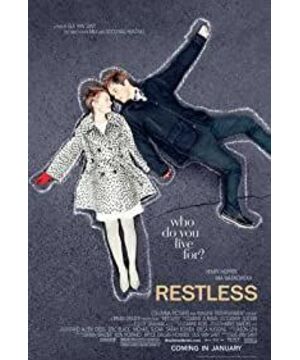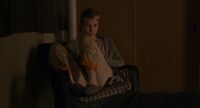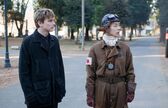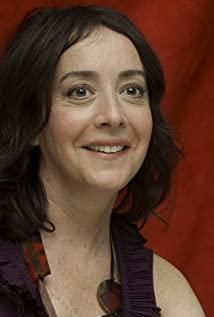sentence comment: The movie as a whole is acceptable. The picture is particularly beautiful, and some details are also very interesting and moving. But if you want to see the thunderous works of "Elephant", I am afraid you will be disappointed!
It’s the first time for me to come to the International Film Festival, and I feel very fresh about everything from getting out of the subway station to entering the cinema. All the way down, it seems that Grandma Liu has entered the Grand View Garden. Introductions and posters about the festival were posted everywhere. Inadvertently, you will see huge posters of new movies starring your favorite actors or introductions of movies made by filmmakers from your own country that you are very familiar with. Just like this all the way to the cinema. I don't know in advance how well the Japanese recognize Gus Van Sant. Just looking at the attendance rate of the day, the theater with nearly a thousand people was almost full.
At 14:45 on time, the cinema turned off the lights and the big screen lit up. This is the first time I have watched Gus Van Sant's movie on the big screen, and it is probably the last time.
The filming location of the film is Gus Van Sant’s hometown-Portland, Oregon, USA. The opening scene of the movie presents the scenery along the way from the perspective of a driving car. Gus Van Sant’s hometown has a unique tranquility, a deserted, lonely tranquility in winter. I have always been obsessed with a hue, the deserted gray hue of winter in Eastern Europe, Austria, and Czech Republic. In this movie, Gus Van Sant also adopted this tone. In the whole movie, except for the occasional one or two colorful dresses of the heroine, there are some bright colors, which are mainly gray, light brown, and black. Perhaps it is to match the theme of the movie's death, or perhaps it is to set off the pure love between the hero and the heroine. After watching the movie, I suddenly remembered: Yes! It's the tone of "Idaho in My Heart" back then.
Gus Van Sant is really literary to his bones. The opening shot was matched with a song similar to American country music, especially the guitar is very nice, light, and free, so I can hardly help but stand up and pat it! Looking at the ending introduction, all the music in the film is the creation of Gus Van Sant.
The story of the movie can be described in one sentence: the teenager who lost his parents fell into deep pain and was unable to extricate himself until he met an elf-like girl who was suffering from cancer at the end of his life. This subject matter is really like those pure love movies in Japan. Although the role setting of the movie determines her final tragic ending, it is difficult to wait for the process of the movie to be so happy and moving that people can almost forget the destined Requiem from the beginning. It can be said that Gus Van Sant used his lens aesthetics and interesting detail design to keep this movie from falling into vulgarity.
The sensitive teenager has always been worried about the sudden death of his parents that year, and did not even say goodbye to him. So he ran to watch various funerals. In Western funerals, there is a farewell session, where the friends of the deceased take turns to tell about the fragments of the deceased in their memory. At every funeral, the actor listened to this farewell ceremony very carefully. Every time I listened, I was a teenager looking for the regret that his parents suddenly passed away without leaving a word. However, at the end of the movie, when the heroine passed away, when it was the teenager's turn to speak on stage, he stood in front of the microphone without saying a word. His mind was full of the good time he spent with the sick girl before his death. The expression sometimes frowned and sometimes happy, but there was no expression of that kind of great pain suffered by the death of relatives. In fact, these real memories are far more important than the flamboyant words.
Like teenagers, young girls who are seriously ill also like to watch various funerals. She wanted to figure out what death was. For her, the biggest dream is to die happily. In the last days of her life, she met a fragile and painful teenager, and at the same time gained beautiful love. She could finally die as happily as she dreamed, but if it was death, she would not let it go.
When playing a role-playing game with a teenager, the girl was furious because the teenager arbitrarily modified the story she had originally designed. The girl accused the teenager of suicide by caesarean section after she died because it was a cowardly act. Poor girl! In order to interpret the pure romantic love in a dream, he will do nothing. Poor boy! What kind of deep love is this, what kind of lonely heart is this, that can give oneself wholeheartedly to another person, moths fighting the fire.
When we are young, we all do things that we think can be earth-shattering but are actually trivial. Looking back stupidly after many years have passed, you may be ashamed of your naivety at the time. But worse than this, we are no longer young! Even if it is death, it looks so pale when it meets young and first love.
Ryo Kase is not acting as a person in the film, but as a soul. The undead of a non-commissioned officer who died on the battlefield of the Japanese commando during World War II. Many people who have watched movies are skeptical of its necessity to appear in movies. He always appeared by his side when he was fragile and in need, played chess with him, and accompanied him through the cruel lonely time. When Kase Ryo finally read the letter that was written to the Shingi girl but had not been sent, I suddenly felt that this role seemed to be a continuation of the "Letters from Iwo Jima" that year. But no one can verify this issue from the director.
After the film was over, Kase Ryo's guest appeared on stage. In the interview, he mentioned the director's famous work "Idaho in My Heart", and also talked about short stories in filming. Until the end of the interview, Kase Ryo suddenly proposed that there was one more thing to say. But before I said anything, my eyes turned red. He said that when he first received this movie, he knew the director was gay, so he specifically asked his gay friends around him. He didn't understand how to make a heterosexual love story as a gay director. He even held this puzzled during the shooting. As for watching the director with tinted glasses, I feel very guilty now when I think about it.
Published on October 26, 2011 at http://cinephilia.net/
View more about Restless reviews











